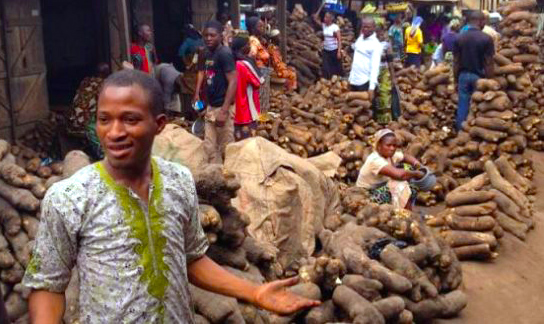
As African food becomes global, it is vital that the rich history and the stories behind West African dishes be shared with the world as well. Pearl millet originates from an area that includes Mali and Mauritania #AGRAF2022 1/9
qz.com/how-west-afric…
qz.com/how-west-afric…
In Sudan-Sahel, millet and guinea corn (sorghum) are the traditional staple ingredients for food, drinks (kunu), and beer (burukutu and pito). This beer tradition has been wiped out in parts where the population adopted Islam #AGRAF2022 2/9 

Guinea yams—which originate from the area between Ghana and Nigeria—African rice, and Guinea corn were the staple sources of carbohydrates until the Portuguese later introduced cassava #AGRAF2022 3/9
The cultivation of yam is traditionally & predominantly in the region stretching from Côte d’Ivoire to Nigeria—with Nigeria presently accounting for about 54% of global production #AGRAF2022 4/9 

With the introduction of tomatoes to Senegal as early as the 1820s—the first record of tomatoes in Africa—jollof rice developed among the Wolof people of Senegambia #AGRAF2022 5/9
Palm oil is traditionally a core component of the cuisines in the Niger Delta, also known as the Oil rivers, which accounted for more than 50% of the total quantity of palm oil exported from Africa annually in the 1800s #AGRAF2022 6/9
Cassava (which naturally contains toxic substances), one of the most important food crop in sub-Saharan Africa, was introduced to the Niger delta from Brazil by the Portuguese in the 1500s #AGRAF2022 7/9
West Africa was traditionally poor in sea or rock salts until the colonial period. B4 that, among the Edo, salt was extracted from mangrove trees. A vegetable salt called pot-ash/salt-ash was made in Sahel-Sudan by burning the stalks or straws of millet and palms #AGRAF2022 8/9
A trademark of west African dishes is their hot spiciness. The hot spices were a major export to Europe in the precolonial period. There was a hot spice made with intestines; it had a long history and was eaten during a religious ceremony in ancient Gold Coast #AGRAF2022 9/9 

• • •
Missing some Tweet in this thread? You can try to
force a refresh












